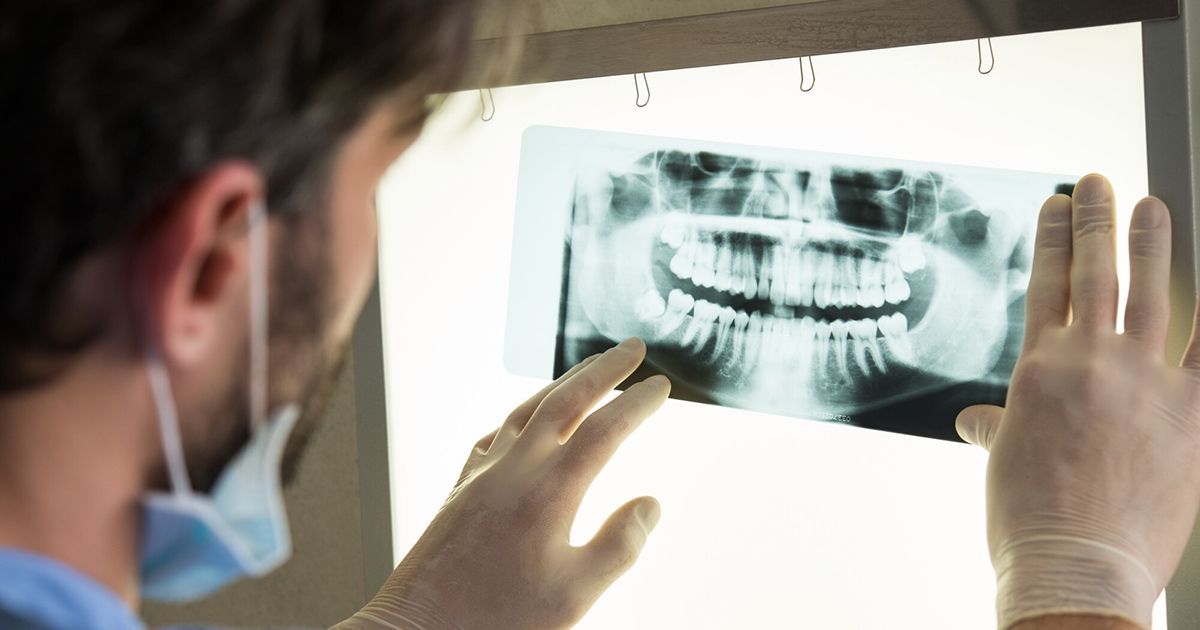What to Consider When Choosing a Dental Implants Dentist in Laurel, MD
When choosing a dental implants dentist in Laurel, MD, you should ask about the type of implants they offer and their costs.
Are you self-conscious about your missing tooth? Instead of hiding it behind closed lips, talk to your dentist in Laurel, MD. They may recommend dental implants.
Otherwise, missing teeth can throw your bite out of alignment, change your face shape, and cause oral health issues. Read on to simplify choosing a dental implants dentist in Laurel. With their help, you can preserve your smile and improve your oral health!
The Dentist's Credentials
Before choosing a dentist in Laurel, MD, review their credentials. Determine where they completed their education and training. Make sure they have a diploma from an accredited dental school.
You can review each dentist's credentials by visiting their Healthgrades.com listing. Check their website for an About Us page as well. If the dentist doesn't provide details about their credentials, keep searching.
Only accredited medical or dental schools can award specialty certificates. Determine if the dentist is a graduate of a dental implantology program (which takes a minimum of two years). Otherwise, look for a board-certified specialist in oral and maxillofacial surgery, prosthodontics, or periodontics.
A periodontist has completed additional training outside of dental school. They specialize in diagnosing and treating problems with bone, gums, and teeth. They're also trained in dental implant surgery.
Finding a dentist with relevant credentials can help you feel more confident in their abilities. These dentists are less likely to make mistakes.
Their Experience
Determine how long each dentist has practiced in MD. Ask how often they complete the dental implants procedure. If they lack recent experience, keep searching.
The total number of dental implants will increase by 23% between 2020 and 2026. However, not every general dentist completes a dental implants procedure regularly.
Consider how long each dentist has run their own practice in Laurel. An established practice with an experienced team likely runs like a well-oiled machine. You're less likely to encounter problems that may impact your patient experience.
Dental Implant Types
Multiple practices may offer different types of dental implants in Laurel, MD. During your consultation appointment, ask your dentist about the pros and cons of each type. Each type meets different patient needs or clinical situations.
The type of dental implant you need will vary based on:
- The location of the missing teeth
- Your dentist's suggested treatment plan
- Your oral health
- Bone density
Consult your dentist before scheduling dental implant surgery. They'll help you determine which type of implant suits your needs.
Endosteal
Endosteal implants are the most common. They're usually made of titanium.
These implants are surgically placed in the jawbone, which creates a stable foundation for replacement teeth. They're designed to support individual crowns, bridges, or dentures.
Subperiosteal
Some dentists offer subperiosteal implants, which are less common. These are ideal when a patient has insufficient bone height for endosteal implants.
Subperiosteal implants are made using a metal framework. The framework is placed atop the jawbone, under gum tissue. Posts will protrude from the framework to support your replacement teeth.
Mini
As the name suggests, mini implants are smaller than traditional implants. They're used to stabilize dentures. These are ideal for patients with limited bone volume, as they require less invasive procedures.
All-on-4
Your dentist may suggest All-on-4 implants, which are designed to support an
arch of teeth. They can provide an efficient solution if you require extensive treatment.
The Dental Implants Procedure
Before choosing a dental implants dentist in Laurel, learn as much as you can about the procedure. Understanding the procedure can relieve any dental anxiety you're experiencing. Make sure the dentist is knowledgeable about every step of the process.
The dentist should first evaluate your teeth, gums, and jawbone. Remember, they'll need to determine if you have enough jawbone for an endosteal implant. Otherwise, they'll recommend one of the other options.
If your jawbone is too soft or thin, they may recommend a bone graft first. Your jawbone must also be free of periodontal disease.
During the procedure for an endosteal implant, the dentist will:
- Cut into your gum
- Expose your jawbone
- Drill holes into the bone
- Insert the implant post
With subperiosteal implants, the dentist won't drill into your jaw. Instead, they'll place the post on or above the bone.
You may experience some swelling or discomfort for a few days. For the next two to six months, osseointegration will occur. This allows bone to occur around the screw.
Osseointegration ensures the implant's stability. Once it's firmly in place, it operates as the tooth's artificial root.
Next, your dentist will place the abutment (a metal extender). They connect the replacement tooth to the implant.
Once the area heals, your dentist can create and place your replacement teeth or tooth. They'll mount the tooth onto a metal frame and attach it to the abutment.
Before your procedure, ask the dentist if you can see before and after photos of other patients who received implant dentistry. These photos will help you manage your expectations about results.
Recovery
Talk to your dentist about the recovery process before your procedure. After receiving an implant, you should let your dentist know if you experience:
- Swelling
- Bleeding
- An uneven or uncomfortable bite
- Severe pain
- Ongoing discomfort
Your new teeth should look and function like your natural teeth. However, you may need to change your diet while you heal from the procedure.
Pricing
Gather estimates from three dentists in Laurel to compare costs. Determine what's included with each estimate. Since implant dentistry is a cosmetic procedure, your insurance may not cover a portion of the cost.
Dental implants usually cost $2,000 to $3,000 per implant. This is only the cost of the implant; it doesn't include the abutment or crown. Once the crown and abutment are added, the total could reach $6,000 per tooth.
Prices can vary based on the dentist's experience and your location. Discuss the dental implants procedure with your dentist beforehand.
Visit Your Dental Implants Dentist Today
Choosing a dental implants dentist in Laurel, MD can help you receive treatment right away. The dental implants procedure can restore your smile and boost your self-confidence. Schedule your procedure today.
At Garland K. David DDS Family Dentistry, we treat every patient like our own family. We care about your health and comfort.
Contact us to schedule your consultation appointment.
Business Hours
- Mon - Thu
- -
- Friday
- -
- Sat - Sun
- Closed
All Rights Reserved | Garland K. Davis, DDS
Website designed and maintained by Xpress, INC

